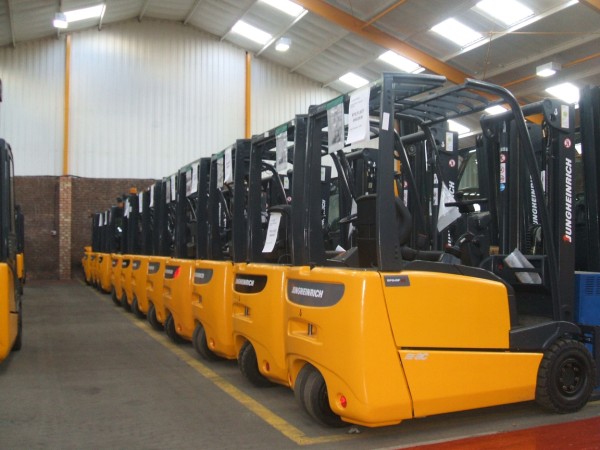 Jungheinrich research indicates that rental plays a key role in managing exceptions |
Jungheinrich UK has released extensive research into the forklift truck rental market, which reveals strong demand for more flexible acquisition of essential equipment.
For organisations across distribution, logistics and transport, manufacturing, construction, wholesale and retail, rental plays a key role in managing exceptions - from peak demands to seasonal fluctuations, and the forklift rental market is risking misalignment with the flexibility organisations now require.
Digital disruptors are influencing every aspect of business, underpinning a shift in customer expectations that demands new thinking to deliver service that's faster, more flexible and available 24/7.
Redefining Rental for Materials Handling Equipment, a new white paper sponsored by Jungheinrich UK and based on research undertaken by Sapio Research, reveals a significant shift in the way rented equipment is considered and utilised as a result, which the forklift truck rental market must evolve to meet.
Almost two-thirds (61%) of people surveyed agree that the nine-to-five approach to equipment hire is out of sync with today's 24/7 demand - and a quarter of respondents feel that the truck rental market is outdated compared to other rental markets.
The paper uncovers a number of new demands.
Fast delivery times and cost are of near equal importance when it comes to hiring a truck (fast delivery times were cited as very important by 81% of respondents, and cost by 79%).
The shift in attitude to equipment acquisition is underpinned by the changing concept of what has traditionally been known as 'short term' within the rental model - with 40% considering short term to be in excess of three months.
There is increasing polarisation in the short-term market - while 71% use forklift rental between one and five times a year, at the other end of the spectrum, 16% will hire trucks in excess of 15 times a year. Both of these trends reinforce the idea of using a flexible hire service as a way to effectively manage market volatility and complement traditional contracts.
While the vast majority (80%) use hire systems based on weekly agreements, there is considerable interest in contracts that are based on a daily hire (22%). A significant number of respondents (60%) also cited the hire periods available as influential in the decision to hire a truck.
There is strong interest (76%) in a rental model predicated on truck usage - based on telematics data - rather than a fixed-term agreement. Such confidence in telematics data reinforces the way organisations are increasingly exploring technology to drive innovation in so many areas, including the Internet of Things (IoT) - and equipment rental should be no different.
Neil Warren, sales management director, Jungheinrich UK, comments: "Faced with today's raft of political and economic uncertainty, combined with rising consumer expectations, organisations are under increasing pressure to assess and adapt their operations to remain profitable. Opportunities to release working capital, scale up and down without risk, find ways to respond to customer demands and explore technology innovation without long-term commitment are business critical - and the materials handling market must not only respond to these operational changes, but lead them."
Earlier this year, Jungheinrich UK announced the launch of its Power Buy the Hour range of rental packages, a highly flexible and completely new approach to counterbalance forklift truck rental in the UK. Supported by greater availability and shorter delivery times, the packages provide customers requiring contracts of 12 months or more with the scope to more easily move up and down price bands, utilising telematics data that can be made visible through the new Power Buy the Hour mobile app launching in 2018.